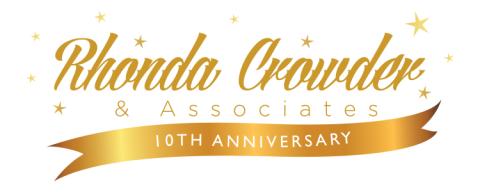Glenville resident Rhonda Crowder always has appreciated being neighbors with Case Western Reserve University. The CEO of the creative services firm Rhonda Crowder & Associates uses the track at DiSanto Field for exercise, she has a CWRU Community Card, and she’s a regular visitor to public events at the Tinkham Veale University Center. But now, thanks to a chance encounter last spring, she’s been able to enhance her relationship with Case Western Reserve as a university partner.
Crowder had asked her friend and Case Western Reserve University second-year student Alana Johns if they were interested in working at Crowder’s firm as an intern over the summer. Crowder had been working with Ideastream on its Connecting the Dots project, which explores how race contributes to poor health outcomes in Cleveland, and she thought that Johns’ interest in public health and public health policy would be a good match for their interests and career development.
The only problem was that Crowder didn’t have the funding to pay Johns.
Then, one day, Crowder was at a community event, which also was attended by her friend Julian Rogers, Case Western Reserve’s Assistant Vice President, Local Government and Community Relations. Since Johns is a Case Western Reserve student, Crowder thought to mention her internship idea to Julian. “I hadn’t thought about it until I saw him, but I asked him if there was any chance that Case Western Reserve had a stipend or funding source so that I could pay Alana.”
Julian connected Crowder and Johns to Drew Poppleton, Director of Post-Graduate Planning and Experiential Education, who suggested that Johns apply for the Humanities@Work program, which connects Case Western Reserve humanities students with corporate, government, nonprofit and other partners through community discussions, networking events and paid career opportunities, such as internships. The program is sponsored by the College of Arts and Sciences and the Baker-Nord Center for the Humanities, in collaboration with the Office of Post-Graduate Planning and Experiential Education, the Office of Corporate Relations and the Office of Government and Community Relations.
Johns completed the application, which included an essay, a budget, their resume and a letter of recommendation, among other required materials. Shortly after applying, they learned they would receive a Humanities@Work stipend.
Crowder was thrilled by the news for two reasons: the stipend would supplement Johns’ summer income, and, more importantly, it would give them a summer experience that was connected to their career path.
“I knew that Alana would need to start having professional experiences and exposures early on,” Crowder says. “And as an African American, it’s more common to go through four years of college and not have this type of experience. We know that the students who have these types of internships early on have a leg up when they graduate. They’re important.”
Moving forward, Crowder says she definitely will consider additional internship opportunities with Case Western Reserve students. “I am a small shop myself and I work with a lot of independent contractors. I would love to work with business students or any other student who could use experience working with a small business or creative agency,” she says. “With the pool of talent at the university, combined with these types of resources, the opportunities really are unlimited.”


